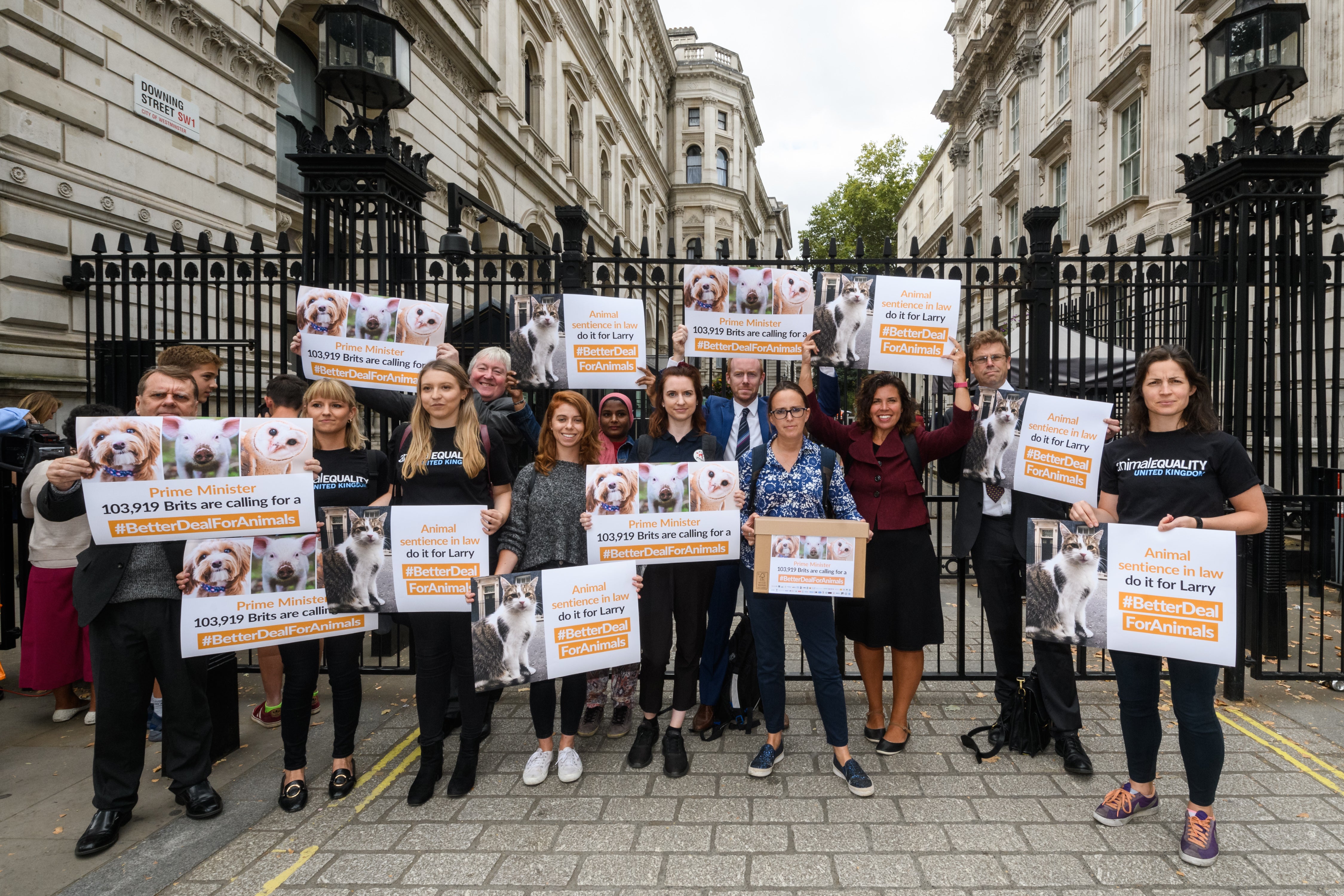Soundbites are not enough – the government must prove it is serious about improving animal welfare
As parliament readies itself for the Queen’s speech, animal advocates are ready to fight for a slew of promised new animal protection laws this year


Your support helps us to tell the story
From reproductive rights to climate change to Big Tech, The Independent is on the ground when the story is developing. Whether it's investigating the financials of Elon Musk's pro-Trump PAC or producing our latest documentary, 'The A Word', which shines a light on the American women fighting for reproductive rights, we know how important it is to parse out the facts from the messaging.
At such a critical moment in US history, we need reporters on the ground. Your donation allows us to keep sending journalists to speak to both sides of the story.
The Independent is trusted by Americans across the entire political spectrum. And unlike many other quality news outlets, we choose not to lock Americans out of our reporting and analysis with paywalls. We believe quality journalism should be available to everyone, paid for by those who can afford it.
Your support makes all the difference.“Let’s promote the welfare of animals – that has always been so close to the hearts of the British people,” said Boris Johnson in his first speech as prime minister, firmly acknowledging that animals matter at the ballot box. Less than six months later, his party achieved a majority with a manifesto promising progressive change for animals, banning imports of hunting trophies, and live animal exports.
Yesterday, we celebrated a landmark victory in animal protection – the law has been changed to increase the maximum sentence for animal cruelty offences from six months to five years. Would-be animal abusers finally have a proportionate deterrent to stop them from starving their dogs or burning their cats. But this law, hard fought for from a bill that first appeared in 2019, is, so far, a lonely victory for animals.
So, as parliament readies itself for the Queen’s speech on 11 May, animal advocates are dusting off their pin badges ready to champion a slew of promised new animal protection laws this year.
Certainly, many MPs appear eager to shepherd animal welfare reform through parliament. Out of more than 1,600 Early Day Motions tabled this parliamentary session, two of the top three – signed by 167 and 140 MPs – are advocating for animals, and bans on trading in hunting trophies and animal fur.
Ministers from across Whitehall are perfectly rehearsed in the government’s commitment to “raising standards of animal welfare at home and abroad”, coupled with a pledge to enhance, and not let slip, our welfare standards following our departure from Europe. But strong soundbites don’t protect animals.
The second parliamentary session looks poised to offer more than soundbites. Defra is developing a number of legislative reforms, including bans on live exports, keeping primates as pets, hunting trophies, and the sale of animal fur and foie gras. Laws on these high profile issues will of course be warmly welcomed by animal organisations and the public, but equally important is the less headline-grabbing but long-awaited and promised animal sentience bill.
Sentience legislation will recognise that animals have the capacity to experience feelings, both positive and negative, and embed a duty of care from ministers to consider their welfare needs when making and implementing policies.
Recognising a legal duty to sentient animals can and should be the foundation stone upon which future animal welfare progress rests. Critical to the success of an animal sentience act will be the formation of an Animal Sentience Committee, which can support all government departments in ensuring animal welfare needs are taken into account in a meaningful, consistent and proportionate way.
One of the first tasks of this new body might be to support the government in creating a new multi-year Animal Health and Welfare strategy, the last of which expired in 2014. Government must give time, resources and expertise to developing a holistic strategy that addresses the most critical issues for animals (not only those that score PR points). As the UK seeks to assert itself as an independent nation in global trade and law, we need a strategy that navigates the important nexus between domestic welfare standards and laws, and the welfare of animals overseas.
The British public care about the welfare of animals all over the world, not just those in our own backyard, and the UK can have considerable influence over animal welfare overseas. We can champion animal protection by using our new independent voice in international treaties, such as addressing the suffering of animals on factory farms via the World Organisation for Animal Health (OIE). Negotiating specific commitments within trade deals, such as agreement and resources to clamp down on cruel trade in wildlife, is another important point of leverage.
Government must be bold in using World Trade Organisation provisions to establish legitimate trade barriers where products or activities overseas fall short of British public expectations. The UK does not allow cruel farming methods that produce fur and foie gras, and so banning the import of these products would be both morally consistent and legally permissible. Likewise, animals born on farms in the UK should not be subjected to gruelling long journeys overseas to continue their lives in conditions that fall below UK farm welfare laws; a ban on live exports is a win that has evaded campaigners for decades but now appears tantalisingly in reach.
The government’s narrative and ambitions as a “global leader” for animal welfare should see it connect the dots between animal and human health. As the WHO’s recent report into the origins of Covid-19 makes clear, we ignore at our peril the public health risk that presents when animals are kept crammed together on farms and in markets, stressed and suffering. The UK must ensure that the newly proposed “Pandemic Treaty” sets the scene for a new covenant with animals, one built on recognition of the fact that the inhumane exploitation of animals jeopardises both human and planetary health.
Next month, the political stars appear aligned to unveil the boldest suite of new legal protections for animals in decades. The prime minister is correct to determine that animal welfare is close to the hearts of British people. Is he is now poised to transcend soundbites and commitments, and influence the minds of policymakers around the world?
Claire Bass is UK director of Humane Society International
Join our commenting forum
Join thought-provoking conversations, follow other Independent readers and see their replies
Comments